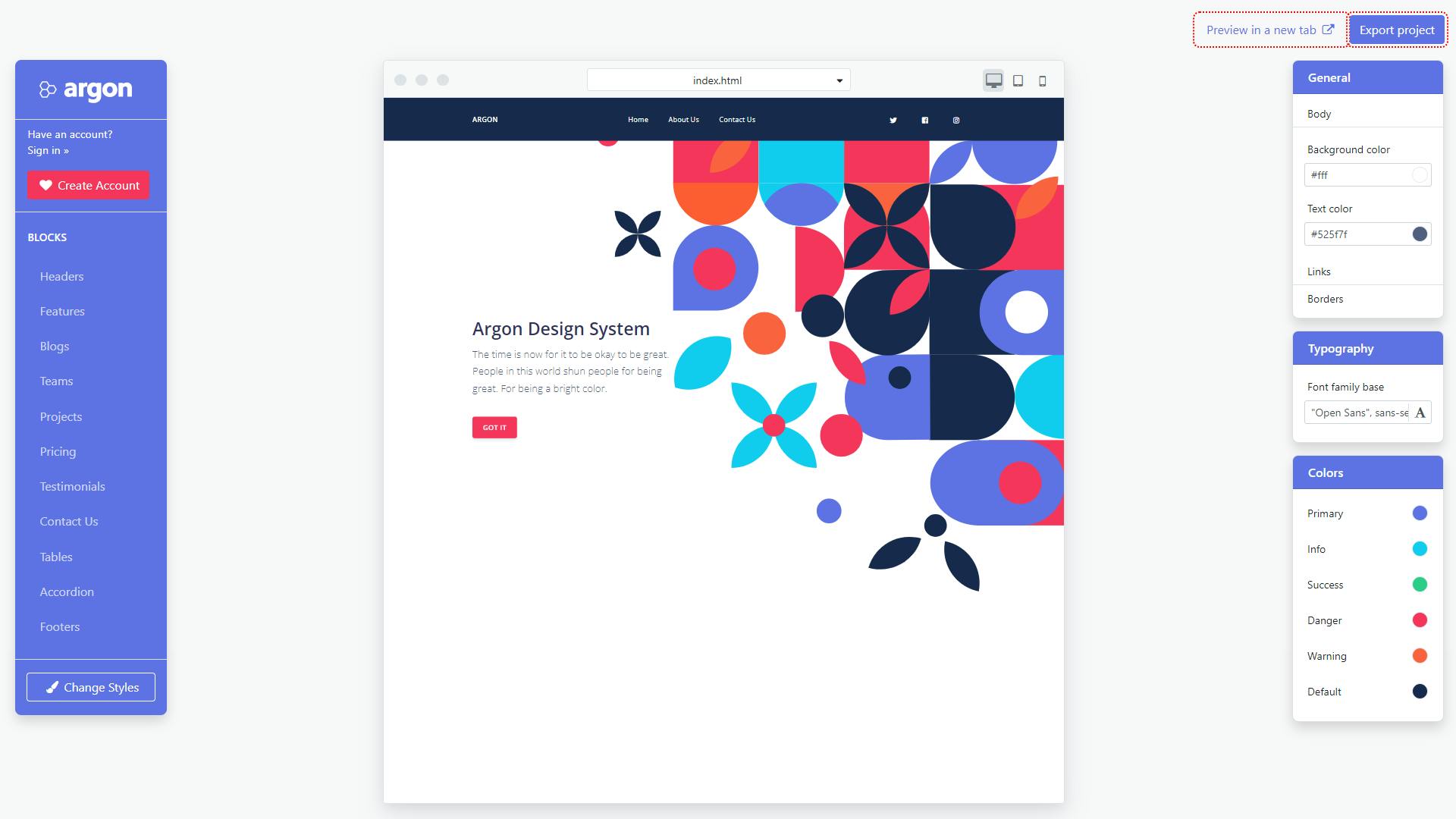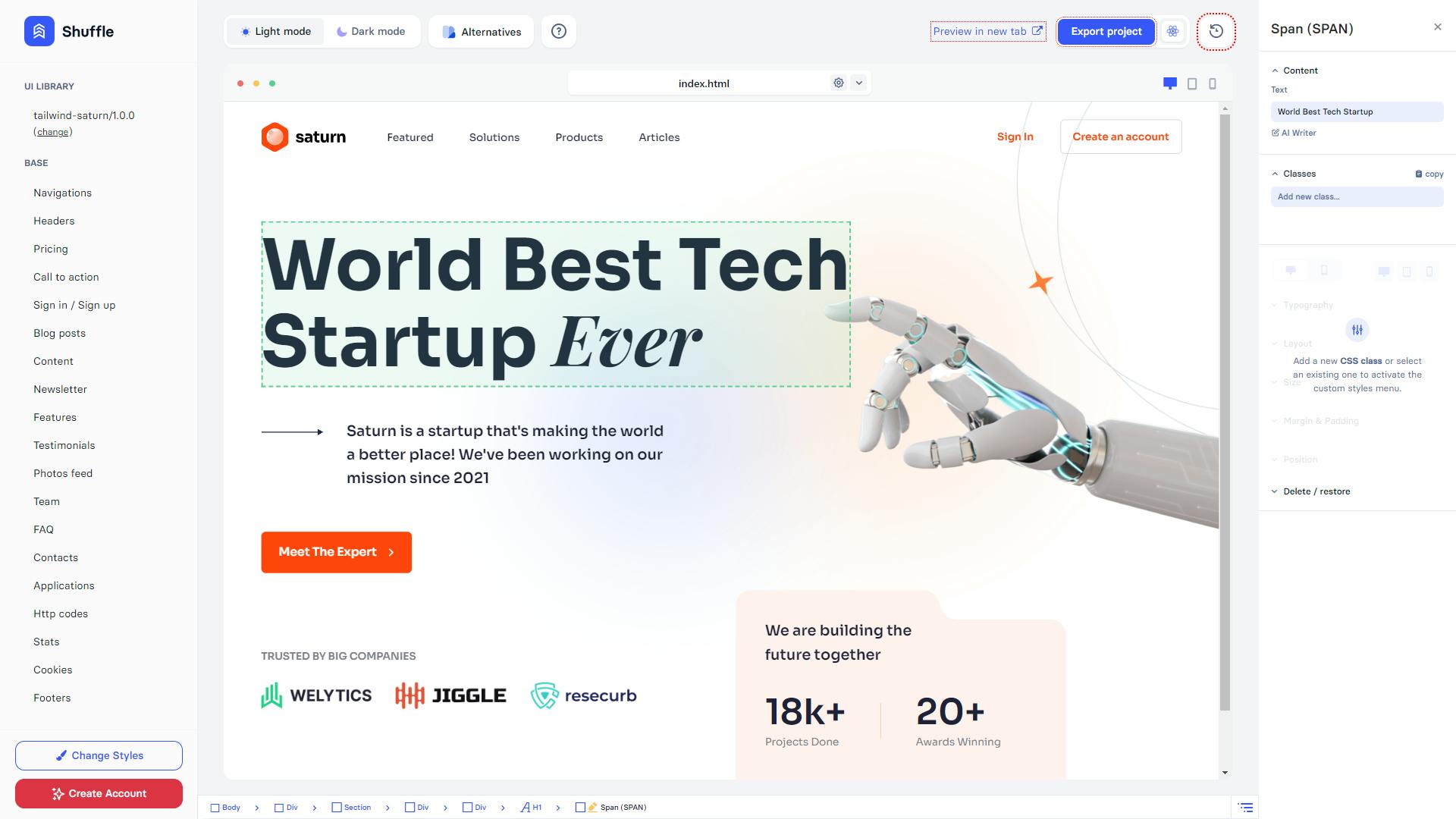What to do when your startup idea already exists? It doesn't matter who came first to the market. What matters is who helped a person or a business. When the whole world tells you to hunt for a new idea, I'll explain why you should build a product that's already there.
First and most important...
Competition is a good sign.
Competition is healthy.
Competition is the driving factor of innovation and improvement.
Without competition, there'll be nothing you can compare your product with (it's hard to improve a product that doesn't have competitive products, good luck with improving that).
Second of all...
There are two types of competitive environments that you can make use of. There could be more types but let's focus on these two:
1. Only one product exists and they have captured almost the entirety of the market.
Usually, you'd think that your similar idea has no chance here.
Think again.
Chances are the only reason they have most of the market is because there are no other alternatives. Having a differentiator will help here.
2. A whole lotta products exist and your idea is in a saturated market.
I see website builders, email marketing solutions, newsletters, and whatnot?... launch every. Single. Day.
They claim to be different but in reality, 80% are similar to the current market solutions. From what I have seen only about 20% are truly different in a certain aspect. But still... after a few days/weeks, the newcomers still post some good $$$$ numbers on social media. (more on similar-looking products that are launched every day later)
Now, anybody can tell you to work on differentiators in your product (more on differentiators later in this post too) to properly execute your startup plan.
Well, they're right!
But...
You're hearing it from the people in the product department. If you hear it from an experienced marketer. They'll tell you differently.
With the right marketing, you can make it work without any product differentiators. With marketing, you can in fact sell an identical/similar product as well.
You can even sell a similar or 100% identical product
word of caution: I'm not talking about making 1:1 copies here! That stuff is unethical and is illegal as per various laws. I'm mainly speaking in terms of functionally similar products. Think note-taking app. NOT cloning another note-taking app and trying to sell it! ❌
I'm literally telling you to sell a similar product in the market when everyone tells you to sell something different/better.
I can explain, I need 3 words: White Label Products.
Have you heard of them? Entrepreneurs take a product that offers white-label functionality, simply add their branding to it, and they start selling it. They can now call this product their own. Just like that. And let me tell you entrepreneurs make good money (in some cases a lot of money) just by selling these existing products.
Take a good look at this: Argon and Shuffle

This 👆 is Argon, a drag-and-drop website builder by Creative Tim.

This is Shuffle, a drag-and-drop website builder by Shuffle Team + White label provider for Creative Tim
If you look at Argon's site, you'll notice logos from Microsoft, Amazon, Salesforce, Samsung, and more at the top, and at the very bottom, a section says trusted by 1,600,000 web developers. 1.6M applies to their entire ecosystem but I'm certain a considerable part of their audience will pay and use this builder (Argon site builder is highlighted in their hero section too).
The point is they're doing good selling an identical (read again: identical) product that someone is also selling. So why can't you?
Here's how you do it:
Go where your competitor is not present. Eg. Your competitor has built a solid foundation on social media channels like Twitter and Facebook. You feel like you can't penetrate the market here. Say no more. Focus on helping women entrepreneurs and go to Pinterest. Unlike other social media platforms, Pinterest's audience is 69.5% women so, when you start focusing on helping this audience you no longer have to worry about your competitors on Twitter and Facebook.
Go where your competitor is and sell there. This will be harder but it's still doable. Thousands of affiliate marketers have taken this route. Acme can have an established brand presence on Twitter, but Acme's affiliates who also sell the same product can generate revenue on Twitter. Just because their audience is the same doesn't mean they have a 100% overlap. There will always be a set of audiences who don't even know about this product/problem yet. Your goal is to try and find these audiences and sell to them.
Tip: You can use tools like SparkToro> to research audience overlaps.
In some cases, you may find a higher percentage of overlaps like more than 60% overlap between the audience you built and that of your competitor. This is when a differentiator will help your product.
Ship and sell your product idea with a differentiator
Differentiators are the winners. You can sell similar or identical (i.e. white label) products of your competitors but a differentiator is the only thing that'll work for you in the long term. Anyone can advise you to differentiate in terms of pricing or features or targeting another country/local market of this category, of course, those are the most obvious. You can differentiate a bit more than that.
Product-related differentiators
These differentiators are heavily tied to your product
Differentiate with marketing
This is repetitive as we saw this above already. Your competitor has a different marketing channel like Facebook and you choose a different one like Pinterest.
Differentiate from the market
Your competitor, who's already executing your newfound idea, is going after the Enterprise market (they all do at some point), and you decide to go after the mid-market, SMBs, agencies, individuals, etc.
I want to make myself clear though. Going after a different market doesn't just mean having low-cost pricing or CTAs that say 'Start free trial' instead of 'Contact sales'.
Focusing on the mid-market means making your products accessible to them. Enterprise businesses are comfortable with using complex interfaces that come with unnecessarily large documentation and training hours included as part of the deal. Your product for the medium market, on the other hand, has to be more user-friendly, intuitive, and visually appealing and must have a good user experience to stand out.
Differentiate with ease of use, UI/UX
Continuing the previous point... People RAVE about UI/UX. Rave is the right word to explain people's reactions to UI. Nobody cares what's inside, they just see a good UI, start raving and the product gets a good first impression.
It's like that old saying, "Don't judge a book by its cover".
No matter how many times you tell this to people they'll still judge a book by its cover.
So if you have a product with a great UI, you can more likely make a good first impression and reach their hearts. Plus, design inspiration sites will more likely feature your work.
Just after making a good UI, you must ensure it stays functional. What's a good UI if a simple button click doesn't work?
Superior user experience (a.k.a. UX) will take a normal product to an outstanding one. 1000s of product management platforms exist but many businesses choose Basecamp because it shines on user experience and is intuitive, and that satisfies the business needs.
Think of it like this:
Fewer features (unbundled from competitors) means your product will be easier to use than your competitor's, so your sweet marketing spot focuses on your ease of use + low bloat.
More features (bundling from competitors) means your product will be slightly harder to use than your competitors but can still add a visual appeal (the UI) and make your product interesting. You can position your product as a feature-packed alternative.
Non-product-related differentiators
These differentiators are not directly tied to your product.
Differentiate with customer support
Customer support is the absolute make-or-break aspect for any startup. Users who download free apps expect some level of support. You can only get away with non-existent support if your product is free and open-source. For anything more than that people will start to have expectations.
Large companies (and your competitors) can struggle with customer support and end up with poor support experience for their customers. People hate that but you can change it.
If large companies or my competitors who have been in the market for a while can't keep up, how can I keep up?
I know that's what you're thinking. I'll explain.
You, as a bootstrapper, will always have an edge over customer support and assistance. Your customers will not be talking to some random agent or some new support hire who has no clue about the product.
Your customers will talk to YOU, the maker who has put his/her soul into the product.
This is unlike speaking to just a support person. You know your product in and out and can offer the best support possible on planet Earth.
Your competition is only doing email ticket support? Install a live chat for your app and make sure your competitors wish they had done that first. Your competition is doing live chat? Add your Calendly booking link as "Book a demo" to your product pages and assist your customers on a 1-on-1 level.
Make yourselves available to your customers and help them make the most out of your product.
Building a relationship with customers is key to any business. As startup founders, we may not have much experience, and "how to deal with customers as a founder doing customer support" is another post for another day. The general piece of advice is you'll get angry customers. I want you to remember these people have put their faith in your product and tried it. The least you could do is try to calm them down and address their queries or gently explain that your product may not fit their use case well.
-------------------------------
Or you can shout back at them, claim your product is perfect, go on to throw curse words at them and tell them to go try some alternatives from your competitor.
(btw the line ------ between the above sentence and its previous sentence is the fine line between support and exceptional customer support)
Differentiate with the experience ✨
For those of you planning to work with similar or identical white-label products, experience is another aspect you can try to delight your customers.
Experience is different from customer support, just to be clear.
Experience is rewarding.
It warms the end-users' hearts, makes them feel they're in good hands, and makes them want to do repeat business with you.
Take this example of two companies selling cars.
Car showroom experience number 01. You search for the car showroom's number and call them. They pick up and say good morning and ask how can I help you. You proceed to say you need to book a test drive and book the appointment.
You go to the showroom on the booked date. You push the door open and enter inside.
You look at the car models there for a while and an agent from the showroom joins you. The agent shows you around and runs down the features from the specs sheet but you have trouble hearing them so you lean in a bit as the other agents from the showroom are listening to some loud music.
You ask for a test drive, they offer you one and you're done. You have decided on the car you want. But still... on your way home, you decide to visit another showroom.
Car showroom experience number 02. You didn't book this second car showroom's visit so it's sort of like they don't even know that you'll be coming. They'll be expecting customers but they won't be expecting YOU.
Here you come.
The man at the door smiles and greets you. He opens the door for you. The agents from the showroom smile at you and one of them joins us and asks how they can help you, hear your needs, and start to show the model. Another agent from the showroom reaches for the TV remote and reduces the volume so you don't feel disturbed and plays a track from their ambient music library.
You have been discussing a car model for 5 minutes, and the manager notices this and arranges a soft drink for you. While you're drinking the soft drink the agent encourages you to take the car for a test ride.
The agent explains the safety features of the car and the comfort it offers during the ride. Now when you're back at the showroom, the manager candidly asks about your experience.
You share your positive experience. Since you're positive about the experience, your agent suggests the popular color that gets many sales. You tell them you need some time to decide and head back home. On your way home, you have really decided the car you want to buy. ----- End of the story.
Now, what was wrong with the first showroom experience? It's okay. Was it good? Yes, good.
What was wrong with the second showroom experience? You meant to ask 'What was perfect'? Was it good? Oh yeah, it's the experience that sells.
Car showroom 01 is your average car but car showroom 02 is your Audi.
This is an example but some may argue the Audi car had features so they decided to buy. I'll tell you another super short example where features won't matter.
Example 02
Do you wear a watch? They all just do one damn thing. All they do is show time.
A $10 watch shows time. The $570 watch shows time but it's a significant quality upgrade.
A $3000 watch still only shows time. The quality, and features are not so different from the $570 watch but this is a total experience upgrade. You're in a Rolex showroom now, the same Car Showroom 02 high-class experience applies here.
So how can you apply this to your business? Can you create such experiences for a B2B software business? Will it work even if my product is similar to existing market solutions?
Short answer: yes
Compelling experiences such as the ones we saw above exist for B2B and B2C too. However, these are quite hard to scale. I'll highlight a few things you can do to differentiate your product based on experience.
You can provide your Calendly booking links on key places on your website, and your actual product (maybe in the dashboard), and take the extra step to guide your users.
Try and maintain a high-touch onboarding to not only get to know a customer's use case but to ensure you set the right expectations for the product.
Have a check on the live chat widgets you installed on your site/app and actively look out for open tickets to solve
Delight your customers with a positive tone in your messaging in all your interactions
Patiently listen and address their queries
If you have their email, never spam them and only send the messages that matter
Another nice-to-do thing is you can follow them on social media and genuinely engage with the posts they share. When you have something to say about their posts, you can comment on it and they'll notice you. Large companies don't have enough time to do something like this but you can. That's an advantage you have in your early days.
Lastly, when your customer wants to leave, you host a farewell party and wish them success with their business instead of holding them hostage. This boosts loyalty and the chances of them coming back are higher than you think.
Differentiate with founder values
Founder values matter for indie products.
Source: a post on IndieHackers
Unless you have an irreplaceable product (which is not the case otherwise you won't be reading what to do when someone is already executing your idea), you gotta have some values.
Well, you should be a man or a woman of value, morals, and principles regardless of whether you have a product or not.
Your choice of words when interacting with your customers will define your brand. This can be tied to customer support too. Never say something that can damage your reputation.
Just in case you don't have any values, the best you can do is not act like you're perfect and be just the way you are. If you put on an act, people will see right through you.
You might think,
I have a great product and that solves a pressing business problem. Businesses will give me money for my product and go about their business. Take Facebook, Apple, Microsoft, Google, Netflix, Amazon, Tesla, [insert that huge tech company here] they weren't building any personal brands and still found success.
That's wrong thinking. Pull that thought out of your brain and kick it far away.
Every huge tech company now was once a startup like you. They didn't come outta the blue to where they're now. Every ambitious founder behind those products worked hard in building their business. They didn't build a personal brand or do something that showcases their values (not that we're aware of).
But... let's look at their acts.
Bill Gates is a humble startup founder, watch any of his videos or his colleagues speak about him, and you'll see. The same goes for content on Larry Page you can find online, after all the success he's had he still doesn't act like a douche with silicon valley money. Larry behaves well publicly. Steve Jobs is known for his powerful presentations and the way he addresses his audience with respect and kindness. Elon Musk still goes on Twitter and just shares memes without taking himself too seriously. Musk is also the only founder with a large celebrity-like audience on social media, he's got fans.
These values weren't something they cultivated after their success. Those values were already there and that helped them, at least that's what I believe.
Their values took them places.
If they were acting like idiots I'm almost certain they would be in a less successful phase.
Think of it like this: You can survive without founder values if you plan on going through VC rounds (talking to VCs still needs values), hiring a few people (managing them takes values), and just running ads on your way to success.
Go do it.
But if you plan on putting your soul into your work, working hard when needed, staying lean, and bootstrapping to success then have some values.
Building a personal brand is a plus.
Differentiate with brand and brand values
Similar to differentiating with founder values, you can differentiate with brand values. Brand values matter to people who make purchase decisions. You can also build a brand and differentiate with that.
Now, I'll be honest. If you don't have founder values go build that and come back here when you're ready. As a bootstrapping founder, it's pointless to have brand values without founder values. Your values will reflect in your product, messaging, and even in your copy on your websites. People will hate it if they hear something different from you and see something different.
If your audience is on social media then a brand will be your friend. Having a brand helps you stand out from the rest. With a brand, people will start to notice your work and tend to pay attention in the long run.
If you are active in the startup community, you might have noticed how people talk about the brand values of startups like Buffer, Basecamp, and many others. Brand values are huge purchase decision-makers.
Values like:
Caring for the customers, employees, and the community
Giving back to the planet
Giving back to minorities
Showing respect to the people the brands have interactions with
Making the customers feel great when they engage in customer support
Dealing a situation positively well when spotted in a bad light (such as when called out)
Being transparent with their process (like showing the salary when hiring)
Participating in movements that matter and make a difference in society for the greater good (like Black Lives Matter, Women Inclusive Workplace)
Little acts of charity like donating money for animals, our mother earth (through Stripe Climate maybe)
Participating in the conversations of the community they belong to and actively listening to their voices
and many more.
lastly, I know the actions I say in this post sound "easy" but honestly all I mean is they're doable. Everything in this post is just as hard as climbing a mountain but that's doable. It can be and will be done.
TL;DR
I'll do a recap of what we saw so far.
Competition (i.e. someone executing your idea) is good. You shouldn't feel guilty that you got this idea and found out that someone else is already doing it. People may call you out and point out that it's already there. Never mind them or say that Facebook, Google, Amazon, Walmart, and so many others weren't the first ones to do what they're doing right now. They'll go away. Existing products only prove your idea. It's wiser to go where the money is already being spent instead of trying to find "the novel idea" and spending all your resources to discover nobody needs it.
Having a differentiator will help when your idea is already there. A differentiator can be how you market it, or something related to your product like pricing, features, the market you're after, ease of use, UI/UX, or something not related to your product like customer support, experience, founder values, and brand values.
Remember, you can even sell similar products to what your competitors are doing. You needn't add any value to your offer and sell pretty much the same thing they're selling. Experienced founders will say you need to have a compelling product to sell. What they mean is that it'll be an easy sale if you have a differentiator. It doesn't mean you can't make money selling similar products to a current market solution or by selling white-label products. Entrepreneurs have been doing this with white-label products for years.
Just find the idea and do what you do best — believe in your work, get out there, and sell them.
If you have something to say, write it in the comments below — I'll respond for sure.
Thank you for making it to the end.


